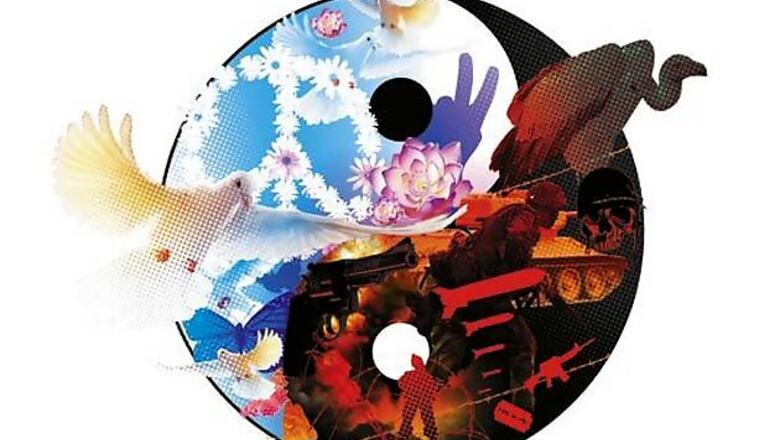
views
I think it's a sign of the times that protest movements like the Arab Spring, Occupy Wall Street (OWS), the American Tea Party, and the anti-corruption movement in India have predominantly been non-violent, although they have led to some violent reactions from governments.
This is not always the case. Often, when people protest during economically hard times, they'd be out with their pitchforks; drag business owners from their homes and publicly torture them. They'd target an ethnic group associated with them, such as Jews or Blacks. I am sure there are other examples in India. Protestors often massacre ethnic groups in large numbers, but the changing nature of the protest is one instance of the growing distaste for violence.
I don't like to make predictions, but there are certain trends that can be extrapolated into the future and for others it is too contingent on human agency. So, any effect that can depend on what one person in a world of seven billion people would do is highly unpredictable.
Will there be another shooting like the one in Norway last summer? There very well might be. There's no social trend that applies to a 100 per cent of the seven billion people.
Likewise, could there be small terrorist groups that plot some mass destruction? Don't rule that out. It's simply not the kind of event that is subsumed under trend.
History tells us certain developments seem to be likely to continue or unlikely to reverse. When each society got rid of human sacrifice, for example, they tended to keep it abolished, it didn't keep coming back. Likewise, slavery; all countries have outlawed slavery. I don't think there's going to be any movement to re-legalise it. I think other liberalising forces are going to continue. Violence against women will be targeted in parts of the world where it is endemic as in much of the Islamic world. It is likely to be reduced. Persecution of homosexuals is likely to go down. On an average, there'd be more democracies than there are right now. Interstate wars — between governments — are unlikely to happen, of the kind we saw in Vietnam, Korea, Iran or Iraq.
Civil wars, on the other hand, are harder to predict. We are currently living in periods where civil wars have been in decline, but it'd be hard to predict that it'd be a permanent development — it might be, it might be not.
As far as OWS is concerned, I suspect nothing much is going to happen. There have been successful mass movements in the past, like against slavery, against whaling or atmospheric nuclear testing. But they had concrete goals: In slavery, it is legal or illegal, in nuclear testing, either you explode or you don't. There are no concrete policy objectives behind OWS. So, I don't see what kind of success it can achieve.
However, civilising forces will continue. The Arab Spring began when I was sending the book to the press, so I dealt with it in just one paragraph. But it certainly vindicates the data I have presented in the book in the discussion of the Islamic world. Our current focus on the Islamist extremists can be misleading. There is a large constituency in the Arab world in favour of liberalising forces. I cited the results of a large-scale Gallup survey in the Islamic world, which showed considerable support for women's rights, democracy and a government that is not controlled by the clergy. So, the events that caught everyone by surprise were not that surprising to me, given the survey data from that region.
But if you are asking whether the focus of the book, which is on transformations that are strictly environmental — changes in historical circumstances that engage a fixed human nature in different ways — will encompass the current social and economic disruptions, then I'd say it's too short a time scale. If you are really talking of human nature, namely the parts of the human mind that are organised by our genes, then because of the process of evolution, it has a speed limit measured in generations. So, any event that falls over decades can't be explained by evolution in the biologist's technical sense.
Steven Pinker is a professor of psychology at Harvard University. His latest book, The Better Angels of Our Nature, talks about how the world is becoming more peaceful.
(As told to Seema Singh)




















Comments
0 comment